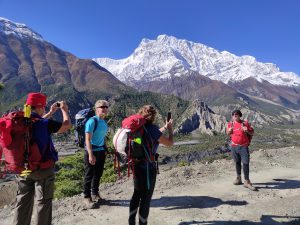
On November 20, 2022, eligible Nepalis all around the country cast their votes to elect the 275 members of the House of Representatives.
This general elections will result in the formation of the new government, with the selection of 165 members from single-member constituencies via the FPTP system and 110 members from a single nationwide constituency via party-list proportional representation system.
Alongside the parliamentary elections, provincial elections also took place. The counting of the votes has been completed. The new administration has yet to be sworn in.
The results of the federal elections in 2022 show that Nepali might have reached conscience not to follow those big names and discourage nepotism. However, only time will tell whether the newly appointed representatives bring a new political wave to Nepal.
Critical analysis of federal elections 2022

According to the count published by the Election Commission, the Nepali Congress secured 32 seats for the party and 57 seats for the constituency, making it the leading party with a total of 89 seats.
The Communist Party of Nepal-Unified Marxist–Leninist (CPN-UML), followed by winning a total of 78 seats—34 seats for the party and 44 seats for the constituency. The UML suffered a loss of 43 seats compared to the last general elections in 2017.
The, CPN-Maoist Centre and Janata Samajbadi Party suffered losses whereas Rastriya Prajatantra Party gained.
Meanwhile, the newly formed Rastriya Swatantra Party was able to win 20 seats, making itself the fourth-largest party after the elections. The party won 13 seats for the party and seven seats for the constituency. The success of the party with a non-partisan president and shared beliefs shows a new change in the Nepali political society and in the mindset of the citizens.
Other newborn parties that managed to acquire some seats in the elections this time are the Janamat Party (6 seats) and the Nagrik Unmukti Party (3 seats). Also, the independent candidates with no political parties managed to take five seats.
No party was able to gain a majority. Still, the Nepali Congress secured the most wins.
In the local elections held in six metropolitan cities, 11 sub-metropolitan cities, 276 municipalities, and 460 rural municipalities on May 13, 2022, a similar pattern was seen. The majority of seats were secured by the Nepali Congress with 13,773 wins, followed by the CPN-UML with 11,929 wins. The CPN-Maoist Centre secured 5,045 seats, and the Janata Samajbadi Party was able to come in the fourth place with 1,548 wins.
The independent candidates managed to win 385 seats. In the local elections, the UML was able to gain the most victories in Province 1, but the rest of the provinces had Nepali Congress in the majority.
The possibility of a new wave
Overall, in all the federal elections 2022, the Nepali Congress proved to hold the popularity card. The communist parties suffered a slight setback in the three tiers of the elections. Several alliances were formed and broken. It was as if the communist emergence had faced significant turbulence within their own community.
Similarly, the old faces in Madheshi politics were finally replaced in this elections by the new faces of CK Raut and Mahindra Raya Yadav.
This year, the Nepali citizens made their stances distinct in regard to the cases of Bina Magar, the daughter-in-law of Pushpa Kamal Dahal; Manushi Yami Bhattarai, the daughter of Baburam Bhattarai and Hisila Yami; Mohammad Firdosh Alam, the son of Mohammad Aftab Alam; and a few others who lost the elections.
Nepotism in politics was always there, but this year’s federal elections did not blindly favour all those big names. But alas, it is not that easy to change a whole generation’s beliefs, and so a few candidates managed to climb up the familial ladder. However, society is dynamic, and the candidacy of people from various professional backgrounds in the federal elections displays an unusual or new wave in politics.
























